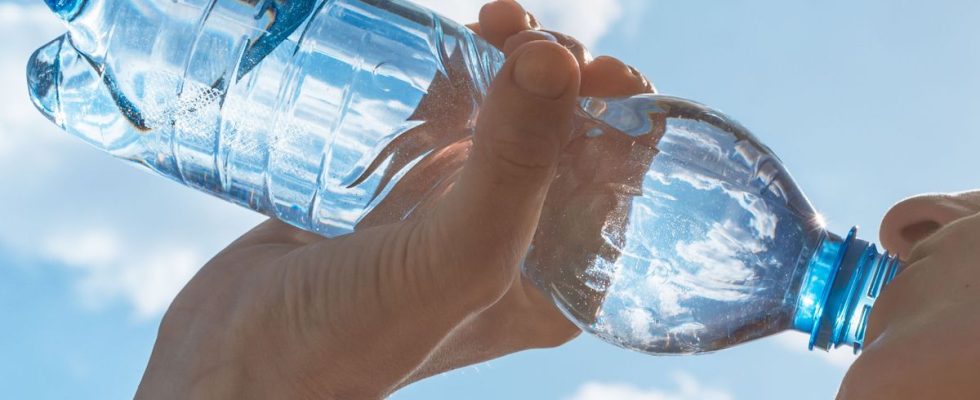“I love water, in twenty or thirty years there won’t be any more. If we owe this cult phrase to Jean-Claude Van Damme, it could have come out of my mouth. I am one of those people who hardly needs to find strategies to get to drink the recommended 1.5 liters of water every day. In case of strong heat, like the ones we are currently experiencing, I even easily exceed 2.5 litres. Faced with this habit, my relatives do not hesitate to make comments to me, ranging from “it’s bad for your health” to “you’re going to damage your kidneys. »
Not wanting to harm my dear little organs, I wanted to know more. Is it really dangerous to drink too much water? And then first, what does too much water mean? Answers with Géraldine Pignot, urologist at the Paoli-Calmettes Institute in Marseille, and Philippe Beaulieu, doctor in charge of the health quality department at the Water Information Center.
Physical activity, weight and temperature to take into account
“Drinking more than two liters a day can be normal, reassures me immediately the doctor Philippe Beaulieu. It all depends on the level of expenditure because, unlike food, water is constantly circulating and cannot be stored. It is therefore necessary that the contributions compensate for the losses. »
If it is generally advised to drink between 1.5 and two liters per day, the body’s need for water is therefore directly linked to the quantity that we lose, in the form of perspiration, urine, breathing or tears. And these losses depend on three factors: the level of physical activity carried out during the day, the weight but also the ambient temperature. The higher these three criteria, the higher the level of water required. “Conversely, in certain cardiac pathologies, it is recommended not to exceed one liter per day”, adds Géraldine Pignot.
A risk of water poisoning
If I don’t move from my sofa but I drink more than 2.5 liters during the day, should I be worried? “You shouldn’t drink more than three liters of water a day,” says the urologist. The production of urine is correlated with the quantity of water intake, once this limit of three liters per day is respected. The rule is not to bring in more than your urinary system is capable of excreting. »
The risk, according to the doctor: “water intoxication”. “The water will accumulate in the body and enter the cells, because the elimination capacities are exceeded, which leads to dysfunctions. Initially responsible for symptoms such as nausea, this cellular hydration can lead to headaches, confusion and ultimately lead to cerebral edema and death.
A question of speed, more than quantity
“More than the quantity, what counts is the speed at which you swallow it”, considers Philippe Beaulieu for his part. Whether it’s a personal challenge, a bet or a hazing, gorging on water in a minimum of time is strongly discouraged. Same operation as explained above: the kidneys cannot drain the excess liquid quickly enough, the cells, especially the brain cells, will swell, causing an increase in pressure in the skull. The consequences of such binge drinking watery can be disastrous. “We know the alcoholic coma but there is the equivalent for water, a water coma, when the body no longer has the means to eliminate all this liquid”, explains the doctor.
Potomania and pituitary disorder
You will say to me that it is enough not to launch out in this kind of bets (a little stupid). But people who like to live dangerously (or don’t know how to say no) are not the only ones likely to be confronted with potential water coma. “Certain pathologies lead to overhydration but have a medical, organic or psychiatric explanation,” emphasizes Philippe Beaulieu. This is the case with diabetes. At the time of diagnosis, it is often associated with an increase in the quantity of urine produced and therefore with an increase in the feeling of thirst and the quantity of water ingested. “In this case, there is no risk of water intoxication because the contributions compensate for the losses”, tempers the urologist.
But another disease causes it, a significant risk of hyper-hydration: potomania. This psychiatric pathology is characterized by an uncontrollable need to drink large quantities of water, often accompanied by eating disorders, such as anorexia or bulimia. “Apart from a pathological situation, it is rare to meet people who overhydrate themselves,” concludes Philippe Beaulieu.
The writing of this article having required me three liters of water, I oscillate between crossing the door of my doctor’s office or trying to convince myself that I am one of these exceptions…

